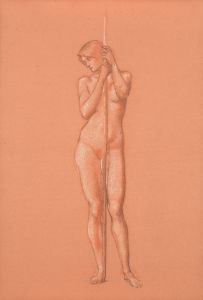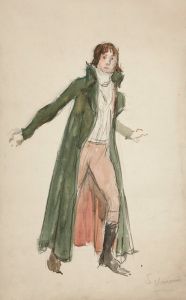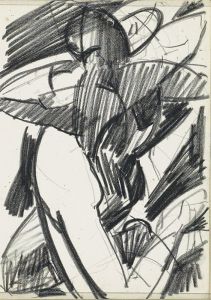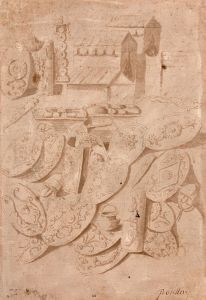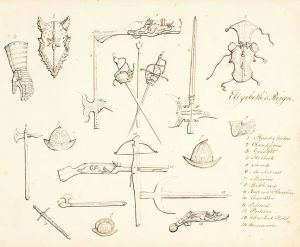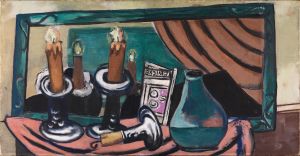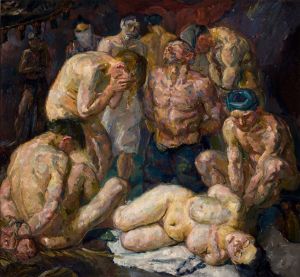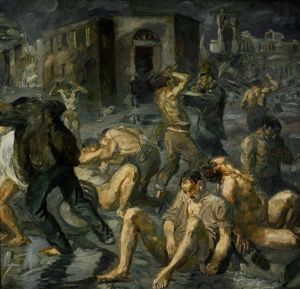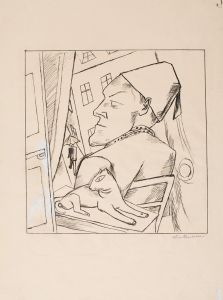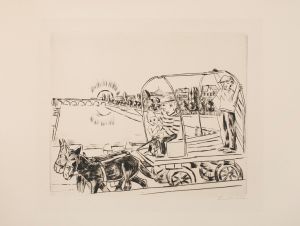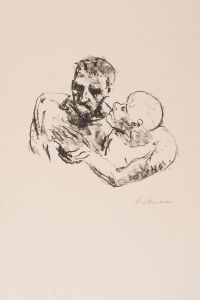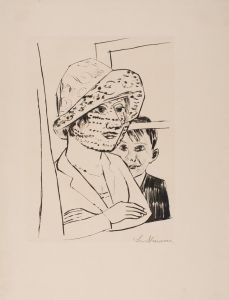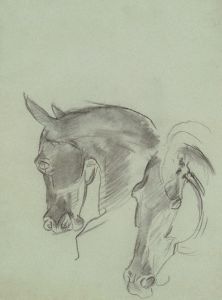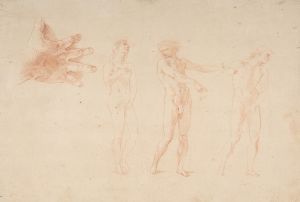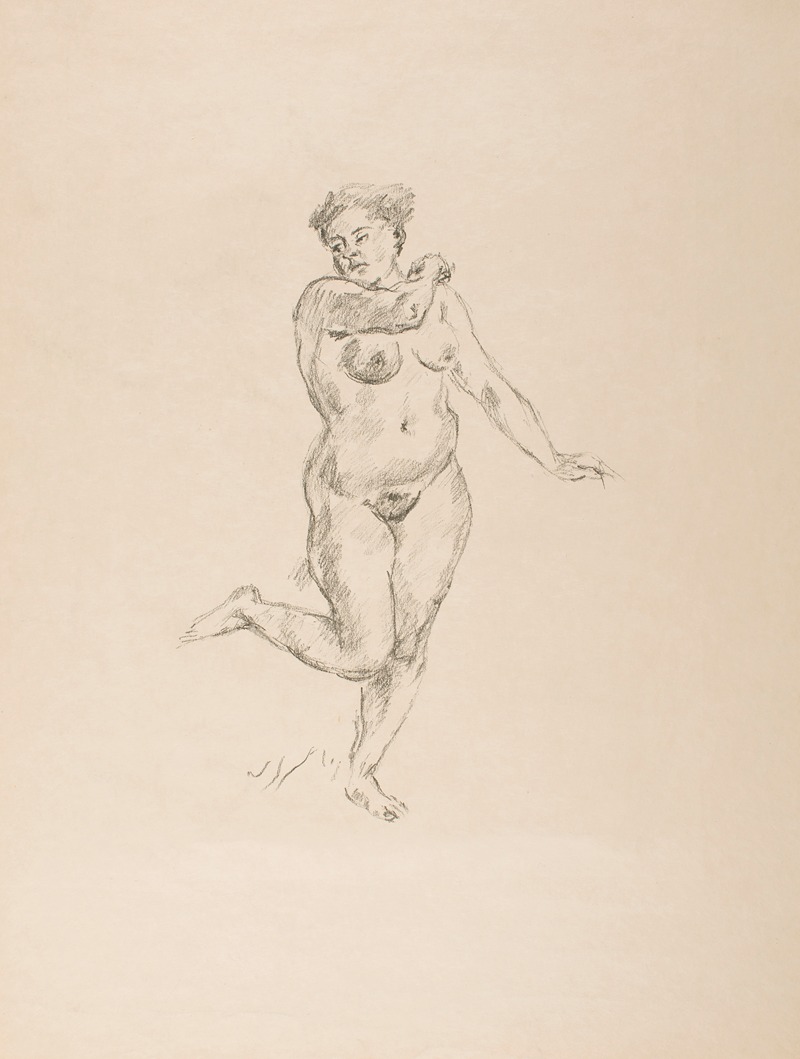
Female Nude
A hand-painted replica of Max Beckmann’s masterpiece Female Nude, meticulously crafted by professional artists to capture the true essence of the original. Each piece is created with museum-quality canvas and rare mineral pigments, carefully painted by experienced artists with delicate brushstrokes and rich, layered colors to perfectly recreate the texture of the original artwork. Unlike machine-printed reproductions, this hand-painted version brings the painting to life, infused with the artist’s emotions and skill in every stroke. Whether for personal collection or home decoration, it instantly elevates the artistic atmosphere of any space.
Max Beckmann's "Female Nude" is a notable work by the German painter, who is recognized for his contributions to the Expressionist movement. Beckmann, born in 1884 in Leipzig, Germany, is renowned for his intense and often somber depictions of the human condition, influenced by the tumultuous events of the early 20th century, including World War I and the interwar period.
"Female Nude" exemplifies Beckmann's distinctive style, characterized by bold lines, dramatic contrasts, and a deep exploration of the human psyche. While specific details about the creation date and context of this particular painting are not extensively documented, it is consistent with Beckmann's broader oeuvre, which frequently includes nudes as a subject matter. His approach to the nude form is often more introspective and psychological than purely aesthetic, reflecting his interest in the complexities of identity and existence.
Beckmann's nudes are typically marked by a sense of tension and introspection, often portrayed in confined spaces that suggest a feeling of entrapment or introspection. This aligns with the broader themes in his work, where figures are frequently depicted in environments that evoke a sense of isolation or existential contemplation. The use of strong outlines and a limited color palette in "Female Nude" serves to emphasize the emotional intensity and psychological depth of the subject.
Throughout his career, Beckmann's work was deeply influenced by his personal experiences and the socio-political upheavals of his time. After serving as a medical orderly during World War I, Beckmann's art took on a more somber and reflective tone, moving away from the lighter, more impressionistic style of his early career. This shift is evident in his treatment of the nude form, which became a vehicle for exploring themes of vulnerability, strength, and the complexities of human nature.
Beckmann's work was not always well-received during his lifetime, particularly during the rise of the Nazi regime in Germany, which condemned his art as "degenerate." Despite this, he continued to produce powerful and thought-provoking works, eventually emigrating to the United States in 1947, where he continued to paint until his death in 1950.
"Female Nude" is a testament to Beckmann's ability to convey profound emotional and psychological narratives through the human form. His nudes are not merely studies of physical beauty but are imbued with a deeper exploration of the human experience, reflecting his enduring fascination with the complexities of life and identity.
In summary, Max Beckmann's "Female Nude" is a compelling example of his expressionist style, characterized by its emotional depth and psychological insight. While specific details about this painting are limited, it remains an important part of Beckmann's body of work, illustrating his unique approach to the nude form and his broader artistic themes.





